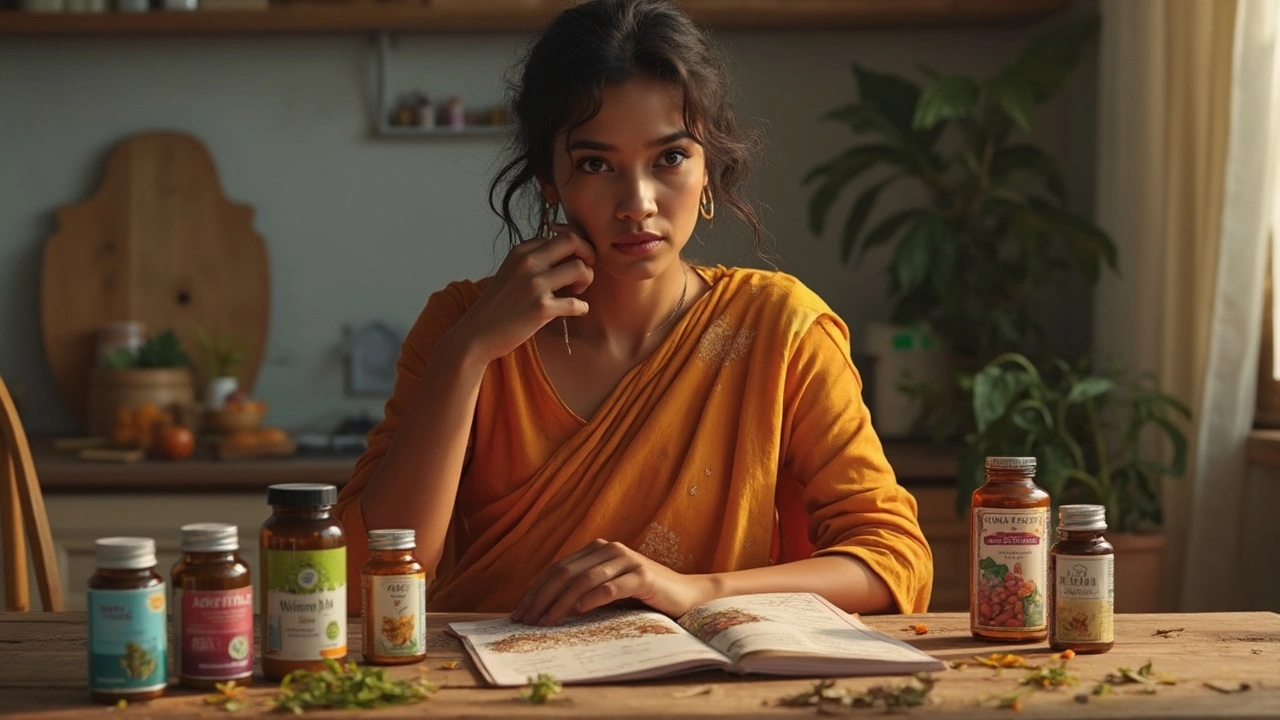Toxic Herbs: What You Need to Know Before You Use Them
Herbs are a big part of Indian kitchens and traditional medicine, but not every leaf or root is harmless. Some plants look tasty but can cause nausea, kidney trouble, or even more serious issues. Knowing the red flags can keep you and your family safe.
Common Toxic Herbs Found in India
Here are a few plants that often get mixed up with safe herbs:
- Aconite (Monk’s Pepper) – tiny blue‑purple flowers, white roots. It can cause heart arrhythmias and severe vomiting.
- Aristolochia (Birthwort) – wavy leaves and orange‑brown seeds. It’s linked to kidney failure and cancer.
- Hemlock (Conium maculatum) – smooth stems with purple spots. Even a small bite can lead to respiratory paralysis.
- Rhubarb Leaves – the stalks are edible, but the leaves contain oxalic acid that can damage kidneys.
- Castor Plant (Ricinus communis) – bright red seeds are packed with ricin, a deadly toxin.
If you spot any of these at home or in a wild garden, keep them out of reach and don’t use them for cooking or tea.
How to Spot Poisoning Early
Symptoms differ by plant, but there are some common signs:
- Nausea, vomiting, or stomach cramps that appear within minutes to a few hours.
- Dizziness, rapid heartbeat, or low blood pressure.
- Skin irritation, itching, or swelling after touching the plant.
- Blurred vision or difficulty breathing in severe cases.
If you or someone else shows these after handling a herb, treat it as a medical emergency. Call a doctor, mention the plant name if possible, and try to keep a sample of the plant for identification.
Prevention is the easiest cure. Store all herbs in labeled containers, avoid harvesting from unknown sources, and double‑check the plant’s name before using it in any recipe or remedy.
When you want a natural boost, choose well‑known safe herbs like turmeric, ginger, or tulsi. If you’re unsure, ask a qualified Ayurvedic practitioner or a botanist. They can confirm whether a plant is safe and suggest proper dosages.
Remember, the same plant can be harmless in tiny amounts but toxic when concentrated. Always start with the lowest dose and watch for any reaction.
By keeping these tips in mind, you can enjoy the benefits of herbal medicine without risking accidental poisoning.

Herbal Supplements That Harm Your Liver: What You Need to Know
Some herbal supplements can cause liver damage. Get the facts on which herbs are toxic, why they're risky, and tips for safe use of herbal remedies.

Can You Shed 20 Pounds in a Month?
Feb, 11 2025

Can You Reverse Knee Stiffness? Find Out Now!
Apr, 4 2025


